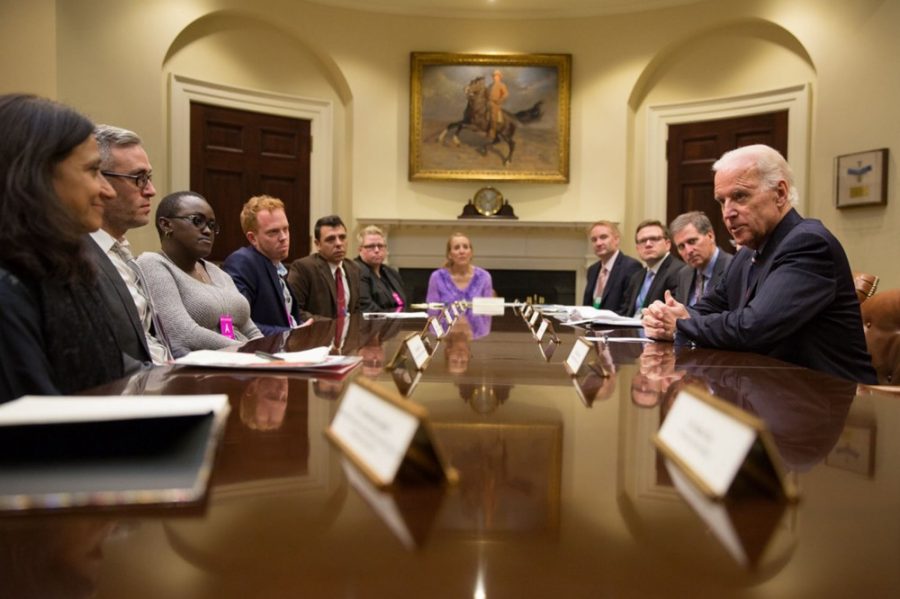Biden’s presidency appears to be a win for the LGBTQ community
David Lienemann, Public domain, via Wikimedia Commons
After just two weeks in office, President Joe Biden has made several changes to policies regarding the LGBTQ community.
February 4, 2021
In his short time in office, President Joe Biden has wasted no time trying to reverse the many anti-LGBTQ discriminatory policies of the Trump administration. From the executive order he signed on his first day to the repeal of former President Trump’s transgender military ban on Jan. 25, his presidency shows promise in the eyes of advocacy groups.
On Jan. 20, the White House released an executive order “on Preventing and Combating Discrimination on the Basis of Gender Identity or Sexual Orientation” declaring its purpose to ensure that every person be treated with “respect and dignity” and the ability to live their lives without fear. The order establishes that LGBTQ people are protected from employment discrimination and discrimination on the basis of sexuality, gender identity and gender expression. This is a huge step for the LGBTQ community, and as executive director of the National Center for Transgender Equality Mara Keisling said, the order “moves us another step toward a day when transgender people can openly live as who they are without being targeted for discrimination.”
Five days later, an order was released that would reverse the transgender military ban that was instated in April 2019. The ban demanded that transgender individuals “must adhere to the standards associated with their biological sex” and must have not been diagnosed with gender dysphoria. There were few exceptions to this ban, and it disqualified many transgender people from military service unless they were to lie about their identity.
President Biden declared that “all transgender individuals who wish to serve in the United States military and can meet the appropriate standards shall be able to do so openly and free from discrimination.” It is his belief that “all Americans who are qualified to serve in the Armed Forces of the United States should be able to serve” and that diversity is a key component to strengthening our military.
The lifting of this ban has meant a lot to many transgender individuals who have served or are currently serving in the United States Armed Forces. Petty Officer First Class in the United States Navy, Brock Stone, captures it perfectly. He said that “the Biden administration’s actions affirm that I and other transgender service members belong in our military, our country, and our society.”
I talked to my classmate Alex Fink about his opinions on this as a transgender person in the Air Force Auxiliary. He said that he believed this order is good for “both the citizens and the military members of the country” because it means there are more people “fighting for a country that they feel safe and accepted in.” He added that, in his experience, transgender people who are forced to enlist and serve as their assigned gender at birth are less likely to put 100 percent effort into defending a country that believes their existence isn’t valid. He talks about his own experience and how he had to “feel more concerned with [his] safety as a trans person dedicated to the military” because he knew multiple people who would “condemn [him] for not being the gender [he] was assigned at birth.” With the ban lifted, there is the hope that the stigma around transgender people will begin to lessen so that fewer people are afraid to be who they are when serving in the military.
As a non-binary person, I can say that all of this change has been extremely affirming for me as well. There is always this fear that a government official can change their mind about my validity as a person, and I lose my rights. In just a few weeks, I have gone from feeling like my entire country is against me to feeling like there is hope for my future.
It’s easy to think that your future is bleak when there aren’t even laws protecting you from discrimination, but we are making progress. Queer people across the country are seeing that they matter and that they are being fought for. And it makes all the difference.
Editor’s note: The author of this piece asked for their name to be removed due to safety issues following their graduation.








